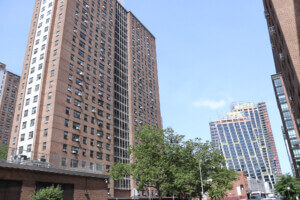The ongoing battle to tear down two prominent monuments to Confederate generals in Charlottesville, Virginia, has seemingly reached its end. On April 1, the Supreme Court of Virginia ruled that plans to remove memorials to Robert E. Lee and Stonewall Jackson could finally move ahead.
The ruling (coincidentally handed down at the start of Confederate History Month, which Virginia no longer celebrates) caps a years-long battle by residents to do away with the statues that predates the renewed social justice protests that swept across the United States and beyond last summer. It also began well before the August 2017 Unite the Right rally that saw thousands of white nationalists storm the Market Street Park (then Lee Park) to protest the removal of the Lee statue there and ended with one dead and 19 other-counter protesters injured.
As the court filing notes, the city of Charlottesville accepted an offer for a donated piece of land and accompanying statue of Lee in 1918, raising the statue in 1924. The same citizen, in 1919, donated another piece of land for a Jackson Park and accompanying Thomas J. “Stonewall” Jackson statue, raising the second memorial in 1921. A Virginia state law passed in 1997 specifically forbade the removal of memorials to war veterans by local governments (likely to stop the removal of Confederate monuments), but the state supreme court struck down an appeal in favor of local residents opposed to the statues’ removal, claiming that the wording of the law didn’t apply retroactively.

The Charlottesville City Council voted 3-to-2 in February 2017 to remove both memorials and rename Lee Park, but a lawsuit from residents in March and injunction granted in May of 2017, citing the 1997 law, blocked the city’s ability to take either down. As CNN notes, the protests over the City Council’s decision snowballed and became a rallying point for violent white nationalists across the country, who descended on Charlotte with tiki torches from August 11 to 12 that same year shouting racist and anti-Semitic slogans. After clashes with counter-protestors and the police, the rally ultimately left 32-year-old Heather Heyer dead after a driver intentionally plowed his car through a crowd. Two police officers also died in a helicopter crash on their way to provide security at the rally.
The effort to remove both memorials redoubled after the violent events of that summer. The Charlottesville City Council and Mayor Nikuyah Walker both praised the decision, and local activists called it a “step in the right direction,” after having pushed for the memorial removals for over three years.
Walker, according to The Guardian, commended all those who had helped push for the decision “for their steadfastness and perseverance over the past five years. For all of us, who were on the right side of history, Bravo!”
The same article also anticipated that without much grounds for an appeal, the effort to block the removal of either memorial is likely dead and won’t reach the United States Supreme Court.











